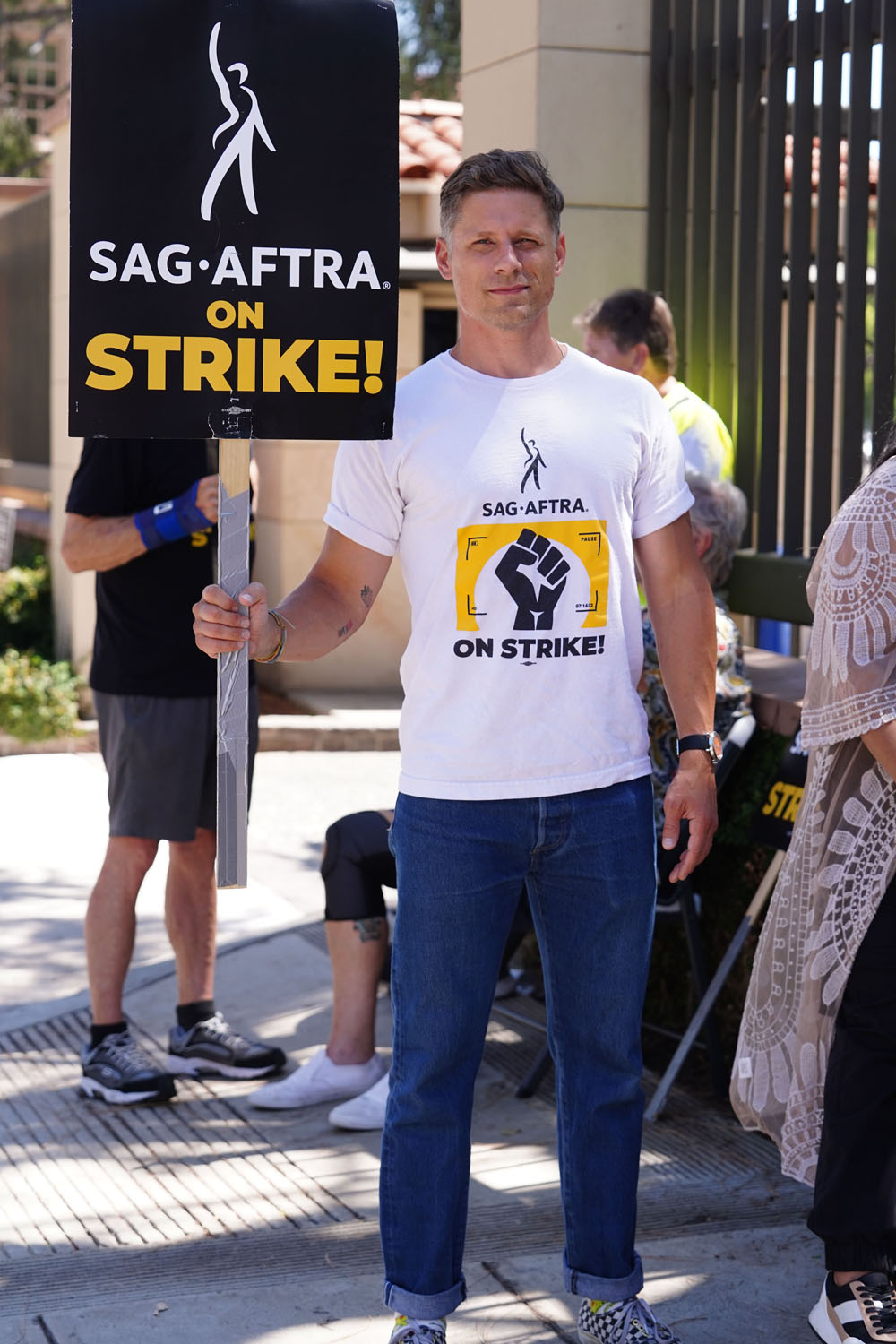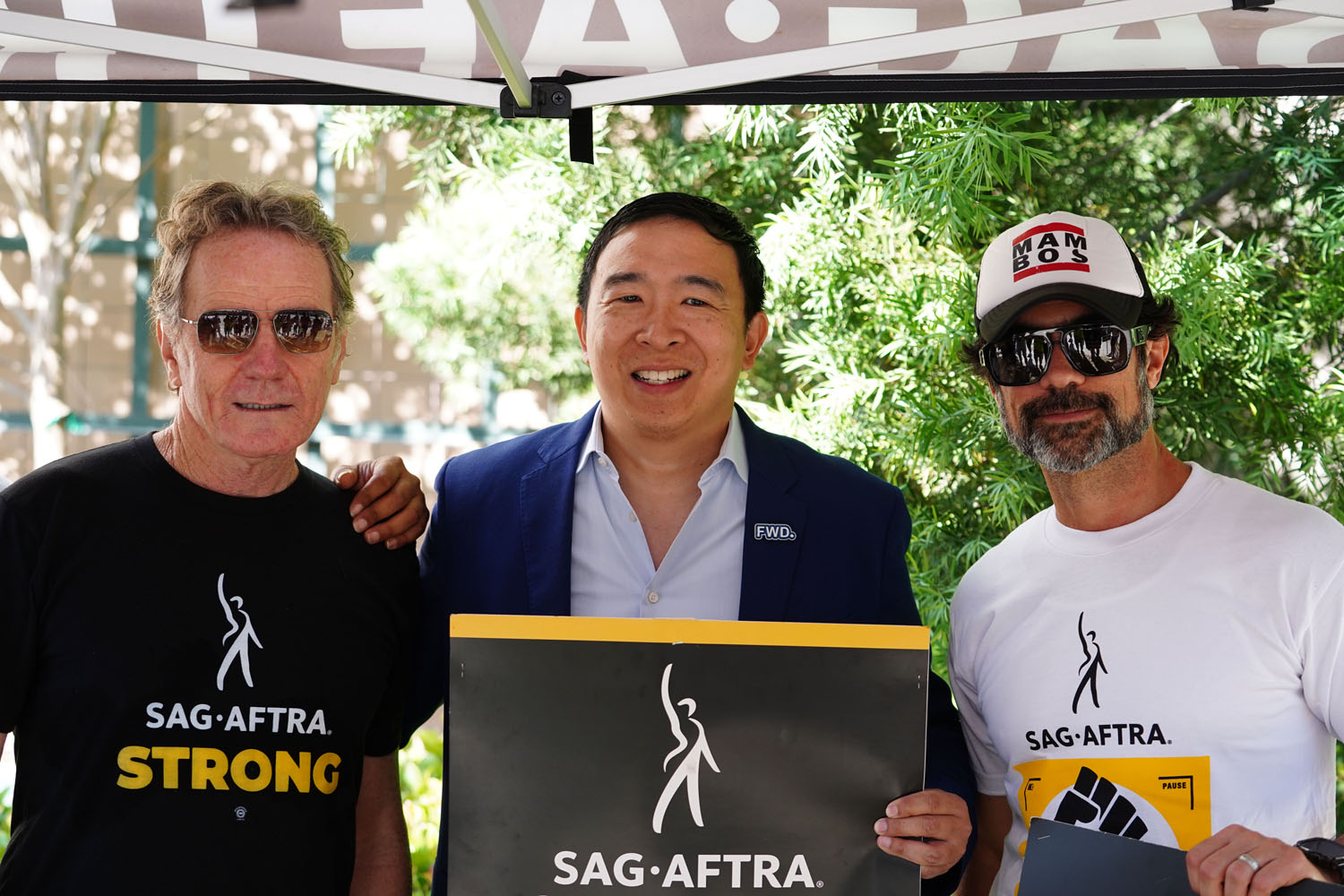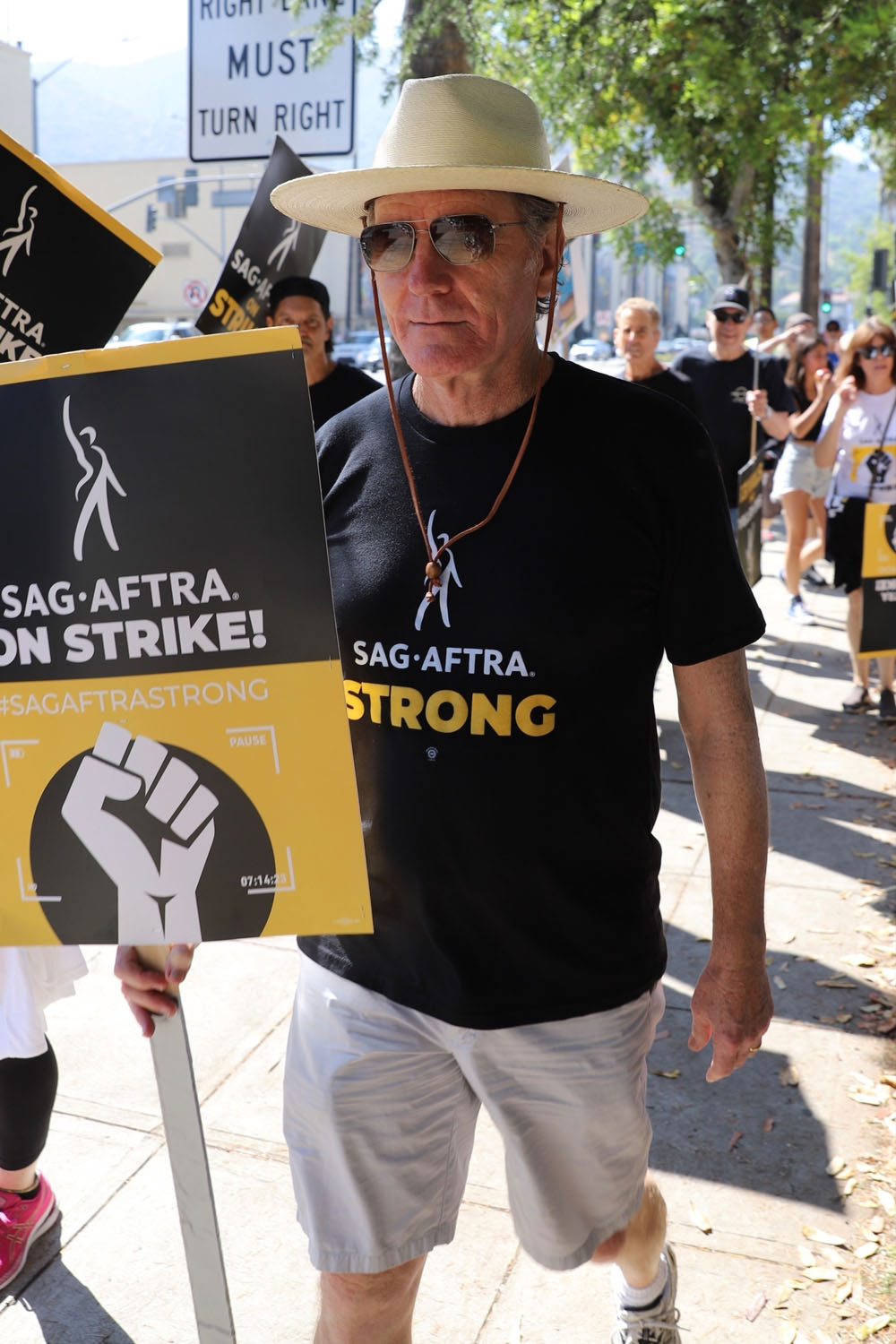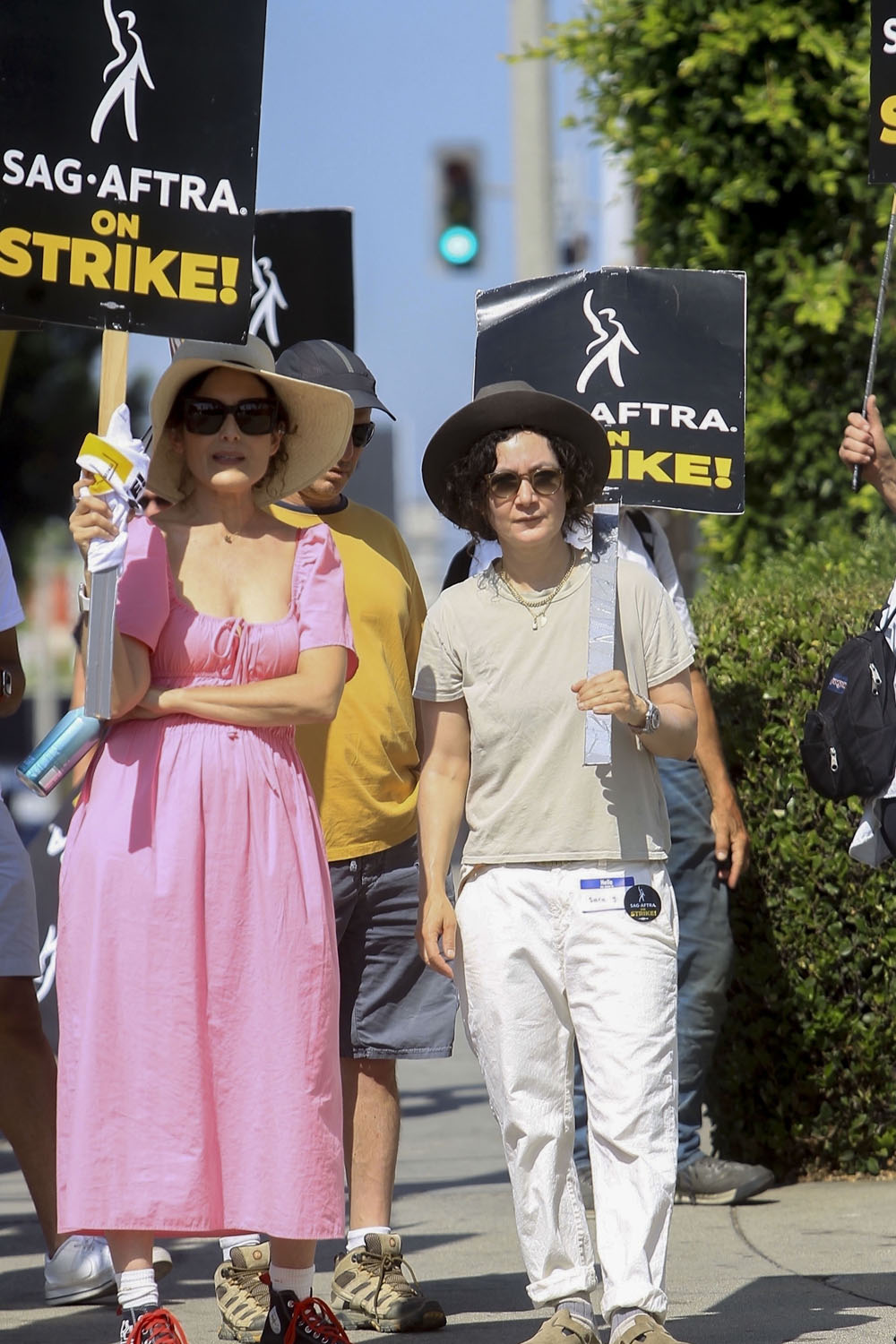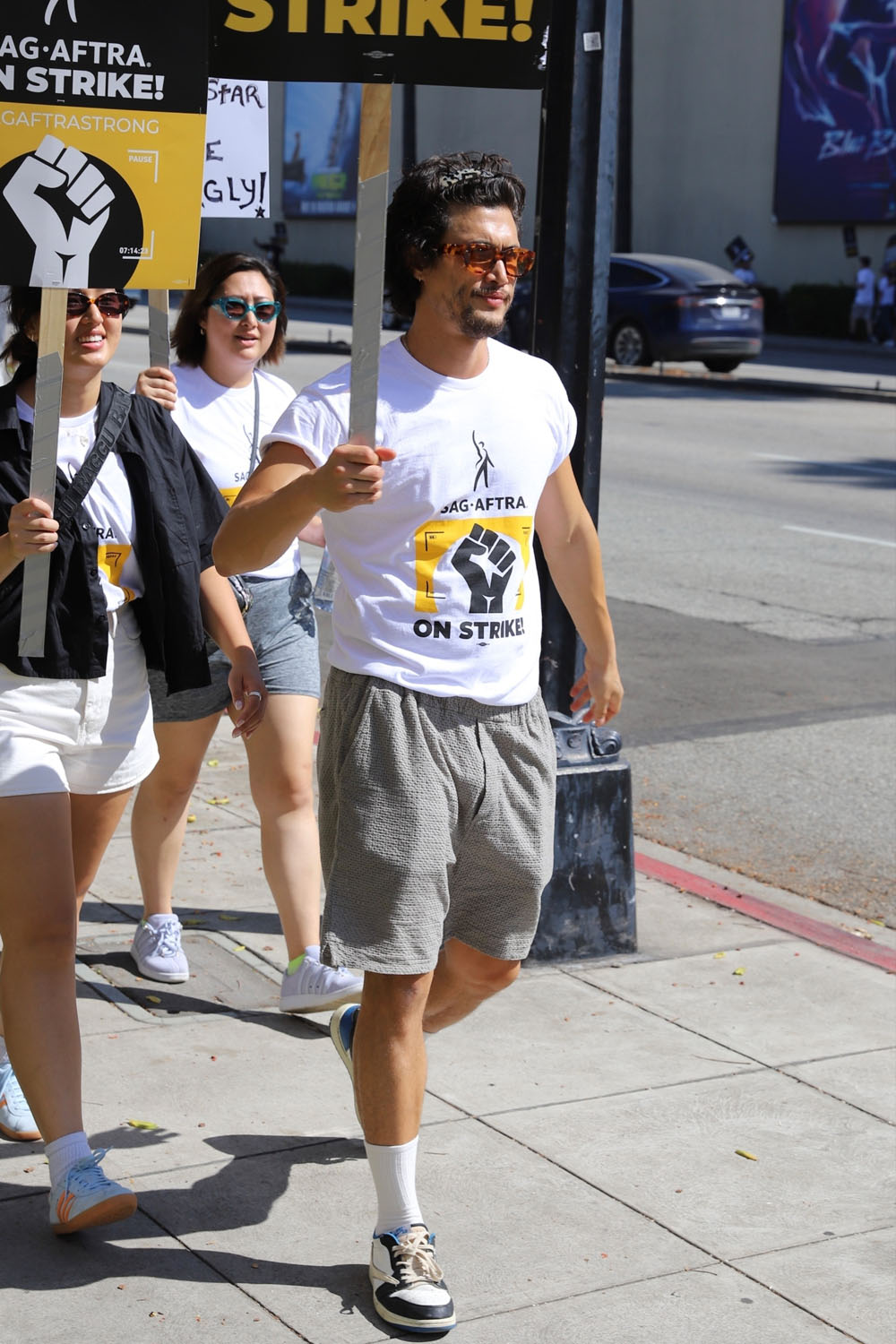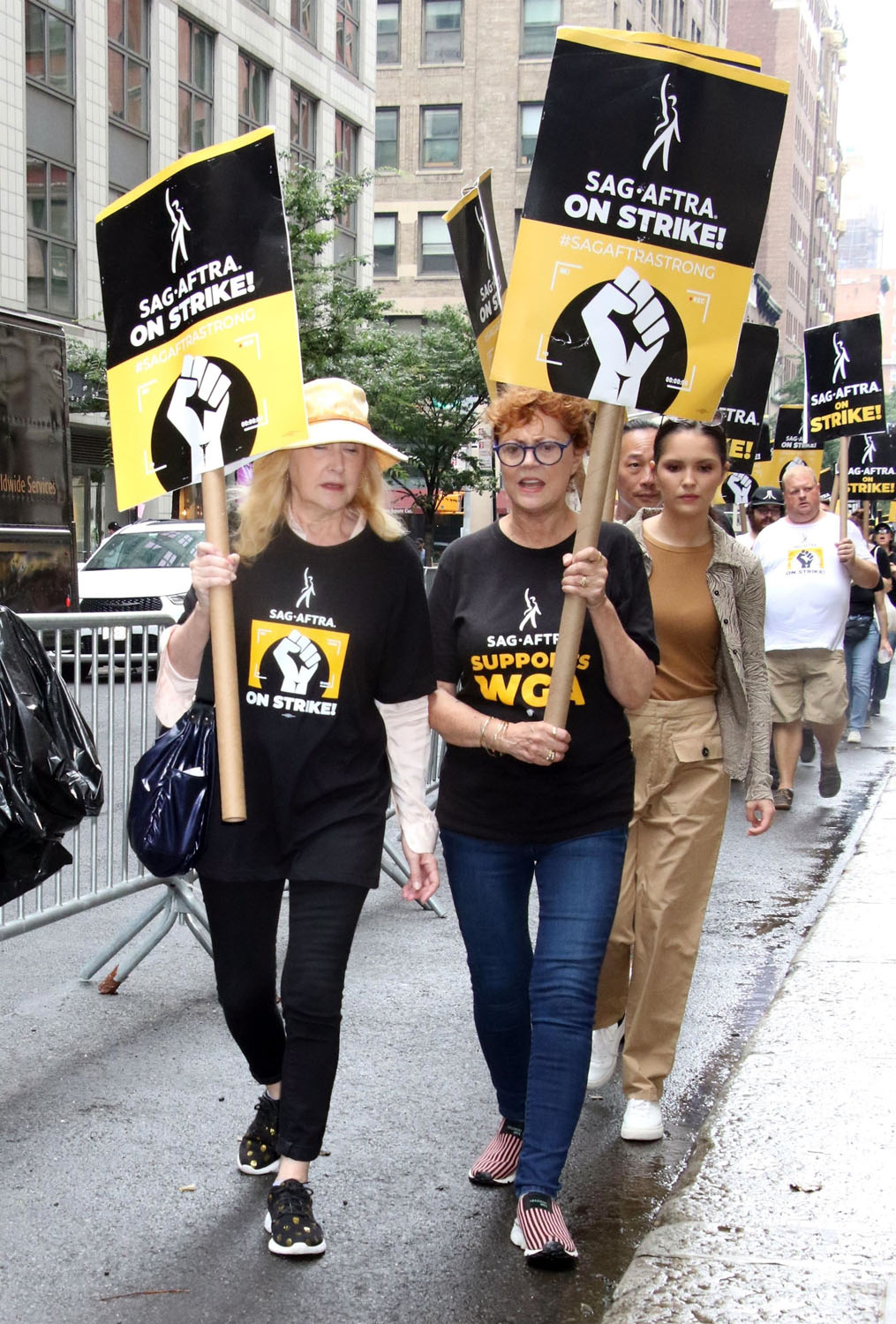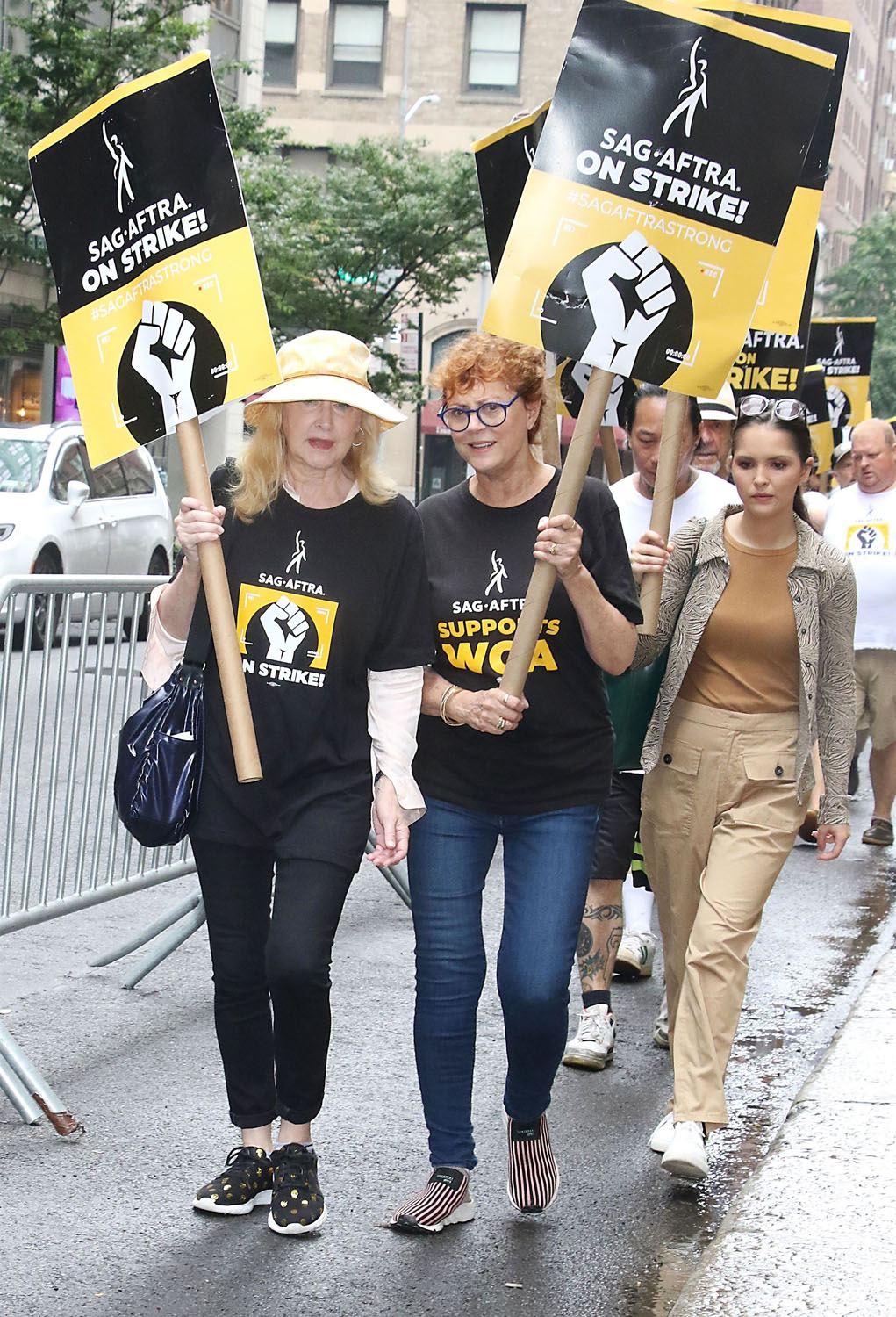The strike isn’t ending anytime soon


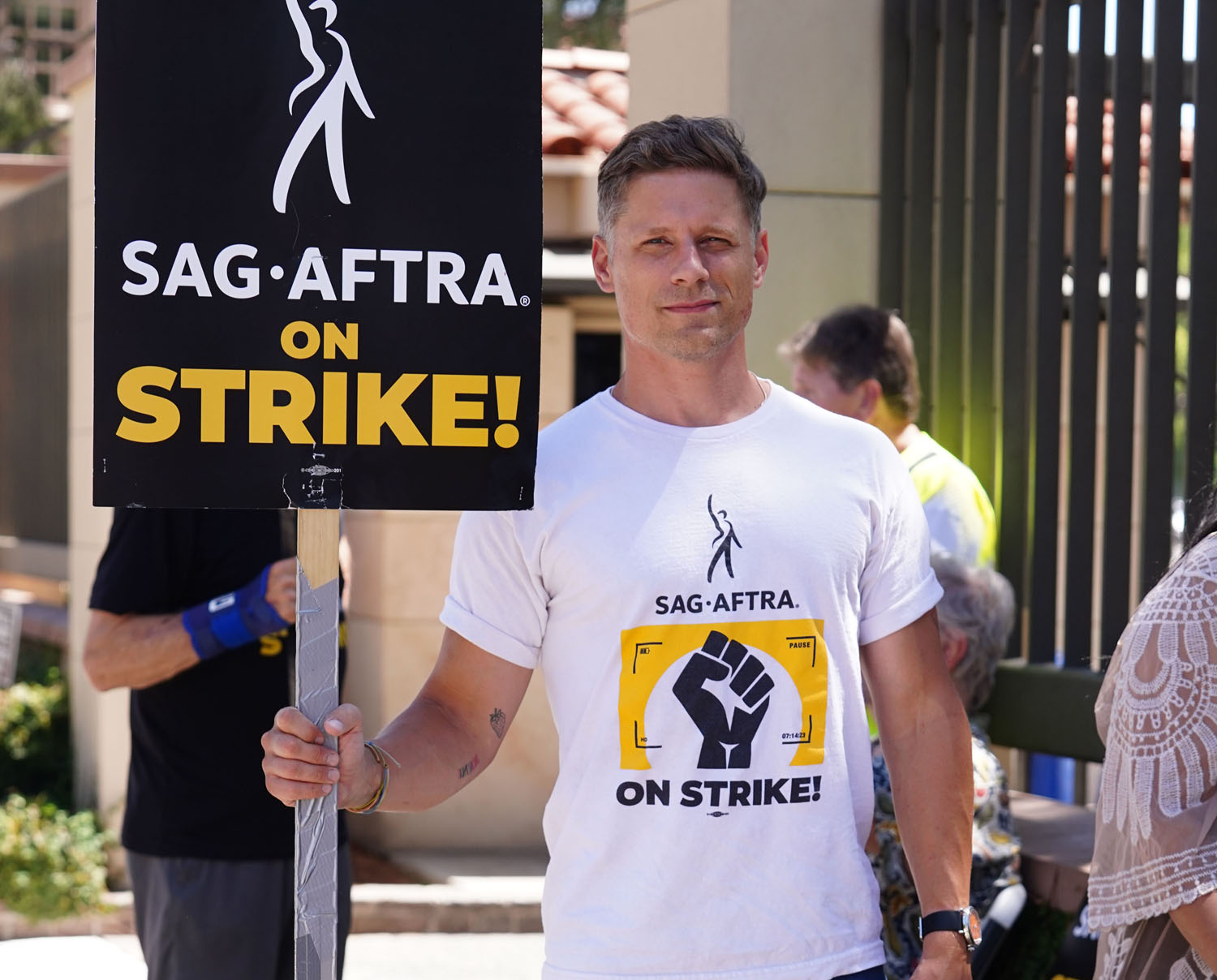
On Friday, August 4, the WGA and the Alliance of Motion Picture and Television Producers (AMPTP) met for the first time since their original negotiations broke down on May 1. This is the first overture toward the WGA to restart negotiations between writers and studios, and it did not go particularly well. After AMPTP asked for a media blackout, folks at the WGA were solicited by the industry trades for comments regarding rumors about the substance of the talks, the implication being that AMPTP ran out to get out their pro-management talking points despite asking for a blackout. The WGA negotiating committee fired off a fairly heated letter to its membership that night in response to the game playing. You can read that here.
So, where are we three months into the (writers’) strike? Surely, AMPTP asking to get back to the table is a good sign? Well, it WOULD be, if there was any sense that they’re serious about negotiating on the WGA’s core concerns, but it doesn’t seem they are. The studios still won’t engage with things like minimum staffing requirements for episodic TV—an attempt to curb “mini-rooms”, which have been deleterious to writers at every level of the industry—success-based residuals on streaming, and increases to healthcare and pension plan contributions. And now the WGA is asking to add language to their new contract similar to the Teamsters, allowing WGA members to honor the picket lines of other unions.
The streamers—Netflix, Apple, and Amazon being among the most powerful members of AMPTP—will fight success-based residuals tooth and nail. They don’t want to open their books to anyone. It might be because there actually IS money in streaming and they’re making even more than we can imagine, and they don’t want to part with a single cent of that wealth. Or, more likely in my opinion, streaming is actually an even bigger financial disaster than the most cynical among us suspect and confirming that would crater parent company stocks. Either way, they don’t want anyone getting a look at those metrics.
But the rest of it? It’s discouraging that AMPTP still isn’t prepared to talk about these issues. They’ve known for months these are the sticking points, and they still don’t have anything to say but “no”. Carol Lombardini, president of AMPTP, reportedly said, “People just want to get back to work,” several times during the Friday meeting. Yes! They do! So pay them to go back to work!
For some perspective on what it would cost the studios to pay everyone to get back to work, WGA member Barry Caldwell broke down the cost to settle with the WGA for each of the major members of AMPTP, including the percentage of that cost against their annual revenue. It’s fractions of percent. Not even whole percents. Pennies on the dollar.
https://twitter.com/1SpencerGarrett/status/1682894017380626432
Something that has been building over the summer is my darkest, most cynical assumption about the strike, and why this one will be especially hard to resolve for writers, more than anyone. I had this thought when the strike started, but I dismissed it as borderline paranoid. But in speaking with people on the studio side of the industry, I am ever more convinced that AMPTP is especially dug in against writers because of the WGA’s collective move to fire agents in 2019. Roll with me.
In April 2019, WGA members collectively fired their agents in protest of “packaging fees”, a practice in which agencies “packaged”, for instance, a pilot script, a showrunner, and a star director and/or actor to sell to TV studios and production companies as a complete starter-kit for a new show. It is estimated that in the 2016-17 season, 87% of television series were packaged. You can read more about packaging here.
Writers (rightly) felt this practice disenfranchised them, and they made the move to fire their agents to force the practice to end and return agents to a 10% commission-based model. It took nearly two years, but in early 2021, WME, the last holdout agency, signed the new franchise agreement with the WGA, ending the practice of packaging. It was a major win for the WGA and was said to “reshape” the agency side of the industry.
And then, with the dust settled, writers…didn’t hire their agents back. Not in the same en masse way they fired them. I’ve heard as many as 80% of writers didn’t reengage with their agents. On top of that, many enterprising younger agents, locked out of the upper echelons of their companies by dudes who refuse to retire, skipped out and formed their own management companies, and more and more talent are opting to ditch agents altogether in favor of working with managers, who often take on fewer clients and can focus more individually on their rosters. Jennifer Lawrence, for instance, is an A-lister without an agent.
Agents often consider themselves aligned with producers. Hell, the whole packaging thing was agents acting as producers. What I suspected when the strike started was that AMPTP, cozy with the agents still bitter about losing the packaging fight, might be a little, er, vindictive toward the WGA, on behalf of their friends at the Association of Talent Agents (ATA). The longer this drags on, the more I suspect there is some merit to the thought.
There is simply no reason not to settle with the writers that doesn’t involve sheer stubbornness and/or cruel determination to watch people suffer. Settling with the WGA would cost the AMPTP so little, in the grand scheme of things, but they’re STILL not willing to talk about the real issues affecting the industry, such as decimated residuals and encroaching AI. You could say the writers could give in, but they’re literally fighting for survival. They’re not the ones with multi-billion-dollar revenue streams to support them. The WGA is just trying to make film and television writing a stable career—not a get rich career, just a stable one.
I leave you with this. Netflix says they cannot possibly afford to pay people more to create and produce their original shows and movies. Yet they can post up $900K annually for an “AI manager”. People just want to get back to work…replacing people at work.

